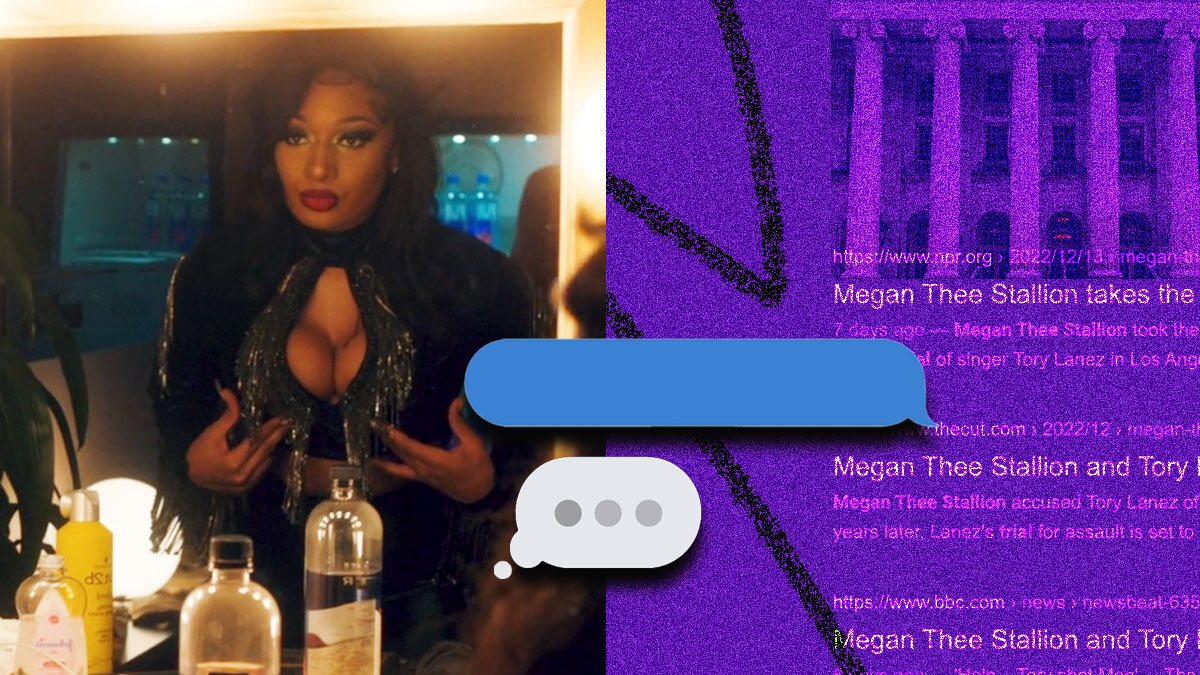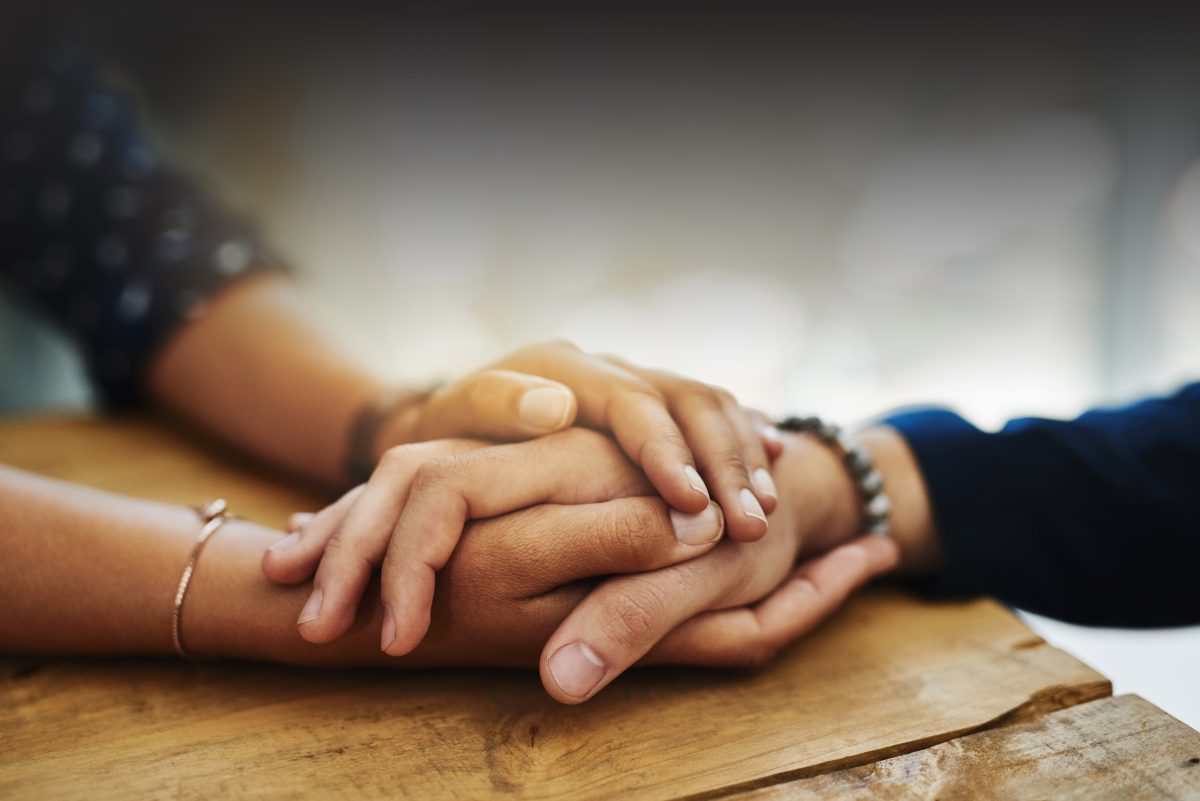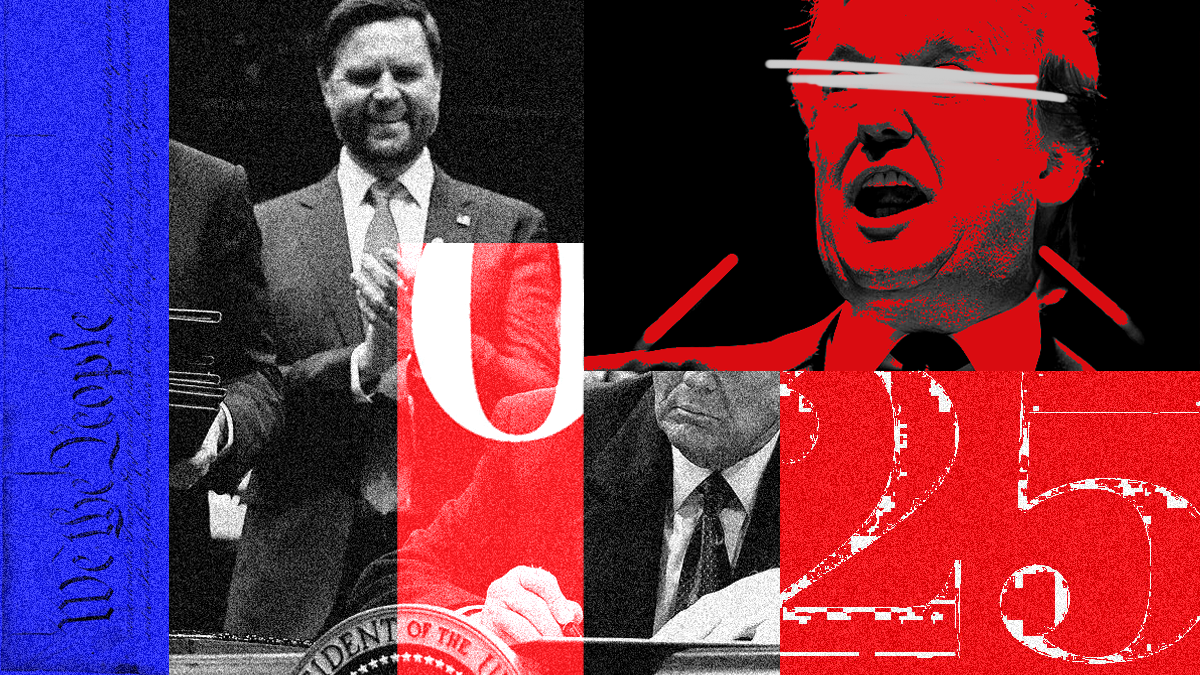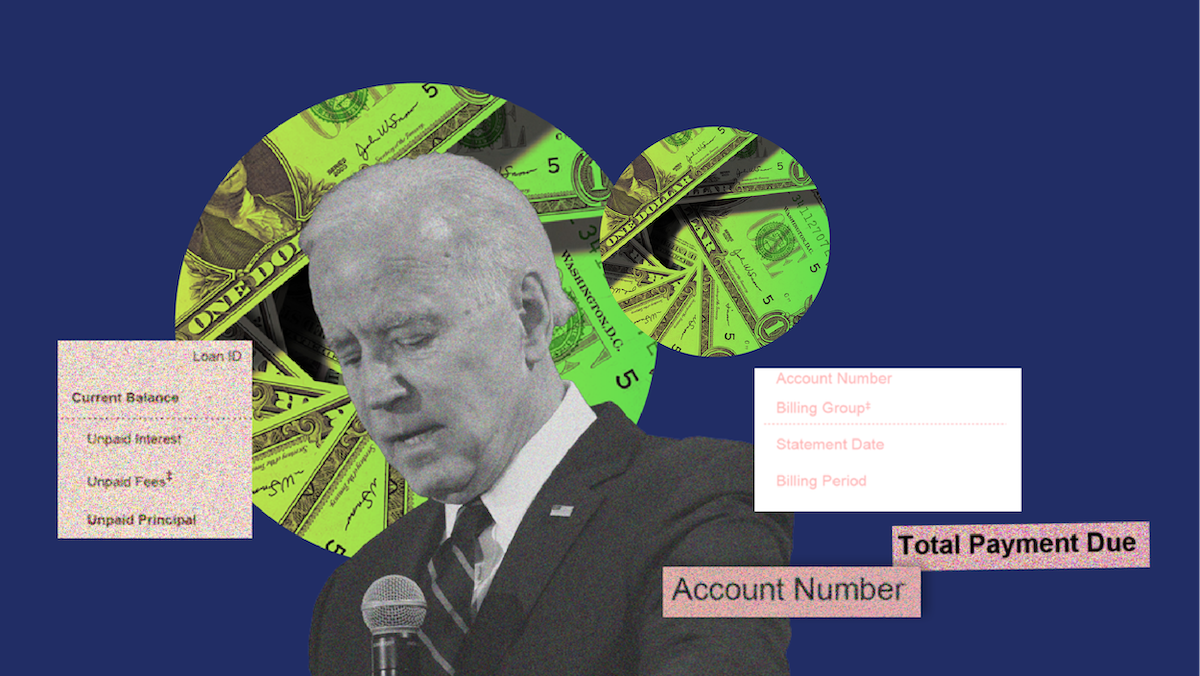Abortion rights, women of color, and LGBTQIA+ people are under attack. Pledge to join us in fighting for gender justice.
“A Terrible Storm”: Megan Thee Stallion, Misogynoir, and Leaving Black Survivors Unprotected

Imagine being forced to relive the most traumatizing moment of your life.
Not just in private, where it would be painful enough. But in public, where you’re facing sexist, racist, and vicious harassment.
That’s been Megan Thee Stallion’s reality ever since singer Tory Lanez allegedly shot her in 2020. In the two years since the assault, millions of people, including other celebrities and major news outlets, have doubted, mocked, slut-shamed, and victim-blamed Megan.
Let us be clear: Misogynoir (anti-Black racist misogyny) is what’s behind these unacceptable and unrelenting attacks.
As Dr. Treva B. Lindsey, a women’s, gender, and sexuality studies professor at Ohio State University, explains: What we’re seeing with Megan’s case is “a terrible storm of these racialized gender stereotypes of Black women.”
Case in point: From a young age, Black girls are hyper-sexualized, assigned more adult-like characteristics and therefore “perceived as more knowledgeable and experienced on adult topics, including sex, and less deserving of care and protection from abuse.” This is called “adultification,” and it is rampant in the media’s coverage of Megan’s assault.
For example, as Lindsey points out, though Megan was 25 at the time of the shooting, people rarely refer to her as a young Black woman. And because Megan chooses to capitalize on her sexuality in the public sphere—an act of reclaiming her own power—the hyper-sexualization she has been forced to endure has been especially egregious. Even further, it’s why many online harassers have chosen to perpetuate the unsubstantiated rumor that Megan had a relationship with Lanez… and to all but ignore the fact she was shot.
As Lindsey explains, even if that relationship was real, “In what world is it then okay for Tory to allegedly shoot [Megan]? This is the way that misogynoir operates. It’s a vicious kind of mistrust and hatred. It makes people believe that [Tory] is credible because we’ve already read [Megan] as hypersexualized and someone undeserving of care and unworthy of being protected in those moments.”
And in some cases, the media hasn’t just decided to leave Megan unprotected—but to paint her as the aggressor. They do so by perpetuating stereotypes that “Black women are loud, angry,” says Lindsey, and by analyzing and comparing Megan’s physicality with Lanez’s—further demonstrating our society’s obsession with policing, critiquing, and commenting on the bodies of Black girls and women.
Let us not be mistaken: the choice to ignore, mock, challenge, and discredit the stories of Black survivors—wielding these stereotypes—is an attempt to coerce Black women into silence and, this too, is an act of violence.
Because it leaves Black women unprotected.
In 2020, five Black women and girls were killed every day in the United States. According to the National Center on Violence Against Women in the Black Community, one in five Black women are survivors of rape. Historically, justice for survivors has been a virtue almost exclusively bestowed upon cisgender, white, able-bodied women. For example, Black survivors who report sexual assault or violence are less likely to be believed than their white counterparts.
And even if their report is taken seriously, the experience of seeking help from a racist police force—with a history of murdering Black people—can be painful, harmful, and life-threatening. The night of the shooting, Megan was trapped in the car with Lanez, while being asked to step out of the car by police officers. In her own words, “I don’t feel safe in the car. I don’t feel safe with the police.” So where, exactly, was she supposed to turn?
To the press? As Megan’s experience has made abundantly clear, they will be the furthest thing from supportive. Though Tarana Burke founded the ‘me too.’ movement to uplift the voices of Black survivors, their pain continues to be ignored and minimized. In the public sphere, Black women’s stories are often quickly discarded as lies before they are even fully heard, and problematic media and cultural depictions fuel a culture of disbelief that pushes survivors further into the shadows.
This lack of public support—grounded in the belief that Black women don’t need or deserve protection—can have lifelong and life-threatening effects.
Take it from Megan herself, who last week in court, shared openly about her experience with suicidal thoughts:
“I don’t feel like I want to be on this earth. I wish he would have just shot and killed me, if I knew I would have to go through this torture.”
Life and death: That is what’s at stake for Black women if we don’t treat their stories with dignity, respect, and care.
Because if a Black woman with fame, money, and legal support feels so hopeless… what about a Black woman who has none or few of those resources? How would they feel if their life was torn apart, just like Megan’s was?
For Megan and all Black women, we must stop “this torture.” We must create the cultural conditions for Black survivors to be heard and supported. And above all else, we must commit ourselves to protecting Black women—in the public sphere, in policy decisions, in every action and consideration in our pursuit towards a more fair, equitable, and gender just future.
To learn more and do your part, visit: We, As Ourselves




